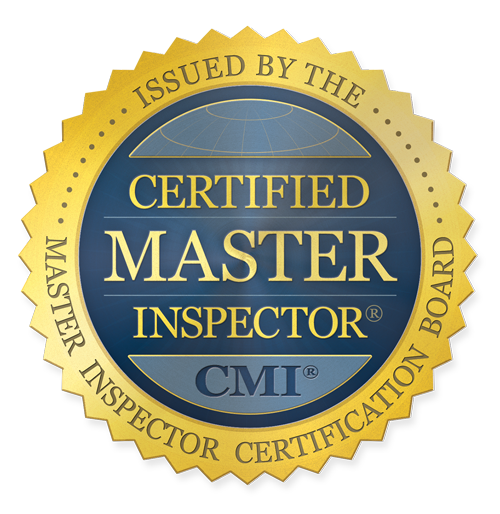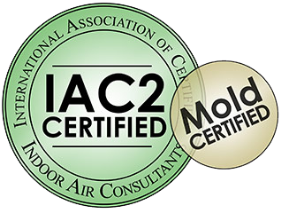A faulty electrical panel, faulty wiring, or outdated electrical systems pose a significant risk to your home and its occupants. According to the National Fire Protection Association (NFPA), faulty electrical wiring is one of the top five leading causes of house fires in the United States. Each year, home electrical fires:
- Account for an estimated 51,000 fires.
- Cause more than 500 deaths.
- Are responsible for more than 1,400 injuries.
- And cause more than $1.3 billion in property damage.
To reduce that risk, the NFPA “… recommend that you have all electrical work done by a qualified electrician, including electrical inspections, when buying or remodeling a home.”
Get the Electrical Green Light: Search “Home Inspector Near Me”
For a detailed explanation of home electrical systems and to learn more about your home’s electrical panel and wiring status, we recommend reading the Electrical Safety Foundation International’s, Understanding Your Home Electrical System. Their article highlights the progression of electrical systems, panels, and wiring used throughout the past 100 years or so, which helps you assess your home’s current risk.
Your Electrical Panel or Wiring May Be Out of Date If…
Here are some of the key signs your electrical panel or home wiring is out of date or needs to be brought to code.
1. Your home was built before 1990
If your home was built before 1990, odds are your system needs some work. By now, the breaker panel is outdated. And, because today’s families use far more electronic gadgets than ever before, you probably need more outlets as well—even homes built in the mid-to-late 90s struggle to handle current electrical loads.
After 30 years or more, your home’s electrical work isn’t the only thing that’s out of date. So this is an ideal time to look up a “home inspector near me” and schedule a home inspection. In addition to the electrical system, you’ll learn more about other systems or home features that are out of date or not up to current code. The good news is the combination of an inspection report and proof a licensed contractor completed the items should garner marked savings on future homeowner’s insurance premiums.
2. A friend or family member did the electrical work
Florida has stringent building codes, including codes that govern electrical panels and wiring materials and installation. These codes are directly adopted from the NFPA’s 70A electrical codes for one- and two-family dwellings.
If your home’s electrical work was performed by a friend or family member rather than a licensed contractor, you cannot be sure the work complies with the current code. This puts your home and family at risk. We recommend having the work inspected by a professional building inspector and then making the necessary changes using a licensed electrician in your area.
3. The circuits keep tripping
The good news is that a tripped breaker is doing its job, cutting off the flow of electricity to prevent a fire or spark. The bad news is that repeat circuit tripping means the circuit is overloaded or the electrical panel is incorrectly-sized for your home. If you’ve had to reset tripped breakers more often than normal, there’s something wrong.
4. You’re using a lot of extension cords and power strips
Sure, everyone uses the occasional extension cord or power strip to make life easier. However, if your home lacks the electrical outlets you need and extension cords are your solution, it’s a sign you need a new electrical system design.
If the current panel has enough room, an electrician will install the outlets you need and add dedicated circuits to the existing panel. If the electrical panel is too old or isn’t large enough, he’ll replace it with a new one.
5. The electrical panel looks old, rusty, or damaged
Electrical panels should look “as good as new” all the time. If your electrical panel looks old, is rusted, or has obvious signs of damage, it needs to be evaluated by a licensed electrician or professional building inspector.
6. The panel (or any outlets) are warm/hot to the touch
When your house is at its most common “full-capacity” (lights are on, a TV or two are going, phones are charging, and some appliances are in use), make a date with your electrical panel. Place your hand on its cover and then along the wall above, below, and on its sides. If it feels at all warm or hot to the touch, the system is overloaded, and you need to have it looked at immediately.
While you’re there, see if you notice any burning or burnt smells. Sometimes, a hot circuit or corroded wires slowly begin to melt the plastic wire jackets and can even begin to smolder in your insulation or structural wood. This is a hazardous sign, and it should be addressed ASAP. That smell is a precursor to a fire.
7. Lights flicker or dim when something is turned on
Does your kitchen light flicker when the coffee maker and microwave are on at the same time? Have you noticed the bathroom light dim a little when the little space heater or air purifier turns on? When the vacuum turns on, do the family room lights and lamps flicker for a second or two?
If the activation of one electrical gadget creates a dim or flicker in the current, there is something wrong. This needs to be addressed immediately because overloaded circuits and power surges are the catalysts for electrical house fires.
8. There are fuses instead of circuit breakers
In theory, there’s nothing wrong with fuses, assuming they are the correct size and installed correctly. The problem is that many people who tire of blown fuses start replacing smaller fuses with larger ones to “fix the problem.” In reality, this just creates more problems because the larger fuses allow too much power to flow through the circuits, causing a fire risk.
9. You’ve installed new appliances
Did you just get a new appliance or two? Have the installation crew verify that your current electrical panel can handle the new load. This is especially true if you have a home that is 25 years old or older. New appliances may require a new electrical panel with dedicated circuits to accommodate their more powerful loads.
Does one or more of these signs sound familiar? Don’t let your home go another minute with an out-of-date electrical panel. While you can feel free to search, “home inspector near me,” we invite you to contact the Super Inspection Pros. We get rave reviews from our Volusia County clients and guarantee 24-hour turnarounds on our inspections.

